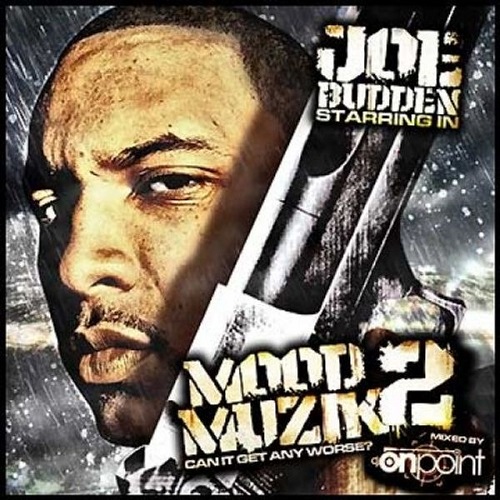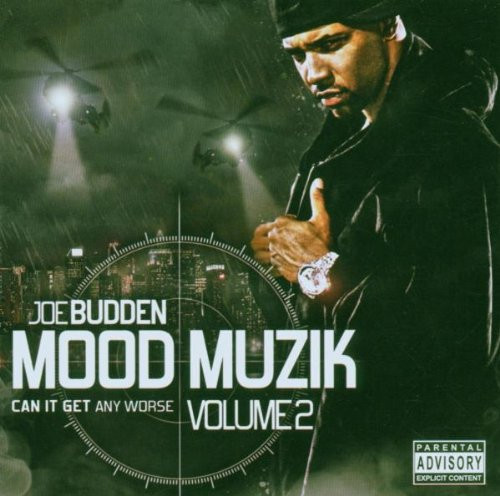History might recall Joe Budden as the ultimate mixtape rapper. It is through that channel, indeed, that this native of New-York, now settled in New Jersey, got noticed. In the 90's, like others, he got publicized through mixes from DJ Clue? and the like. And in the next decade, despite his "Pump It Up" hit single and an album for Def Jam, disagreements with his label sent him back to the mixtape world. Thanks to his Mood Muzik cult series, he was able to boost his career again and to launch new initiatives, like the Slaughterhouse supergroup he would launch at a later stage, jointly with Royce da 5'9", Joell Ortiz, and Crooked I.

Released in 2003, just when Joe Budden focuses on his commercial career, the first Mood Muzik is not particularly remarkable. Things get more serious, though, with the next volumes. They belong to a new generation of mixtapes that, in the heart of the 2000's, start looking like regular albums.
On its second iteration, the rapper selects his tracks with surgical attention. He alternates big banging beats – clumsy ones like with "Get It Poppin", "Ghetto America", and "What's Up", but also formidable ones such as those on "Young Niggaz", and "World Takeover" – with meditative ones on "Future", or R&B-leaning songs like "If I Should Die Tomorrow", and also the damn good "For A Reason".
Also, with his mushy voice, he talks on brand new production works, notwithstanding the expected samples and pillage in hip-hop music. With the care usually reserved to a commercial album, Joe Budden looks like he wants to bring to his mixtape, everything his label would never grant him.
That way, he takes a singular pose inspired by his own background. That rapper, like others, had a life heavily impacted by drugs. But not as a dealer, more as a consumer, with strong addictions. As a result, instead of the common triumphal tone, we hear pain and fatalism when Budden raps.
Hence the word "mood" in the title. Joe Budden is moody; he has dark dispositions. He is still a bad boy, but doubts and depression are lurking. As soon as with "Are You In That Mood Yet", he admits his failures, like his inability to be a father. On this nice and melancholic song, death is an option. And later, with "If I Die Tomorrow", he looks ready to welcome it, with no regret, satisfied with his eventful life.
The lessons he learned from the past, Budden also shares them through some storytelling, like with the admirable "Three Sides Of A Story", the main highlight on Mood Muzik 2. This is made of three successive tales that, actually, are variations of the same story, told from the conflicting perspectives of various protagonists. This song is splendid. And also, it describes and denounces the resentment and the spiral of revenge that undermine his own community.
With "Dumb Out", another key song, the rapper pretends, with a few examples, that the best moments in rap rarely coincide with media attention. And on "Old School Mouse", he confronts himself to DJ Clue? and Jay-Z: contrary to him, he may not be destined to success, but he is authentic.
He is correct by all accounts. In 2006, with this mixtape, Joe Budden is more relevant that many higher-profile rappers.
PS: eventually, this mixtape would be released in a more official format, as a regular CD, with the following cover art.

